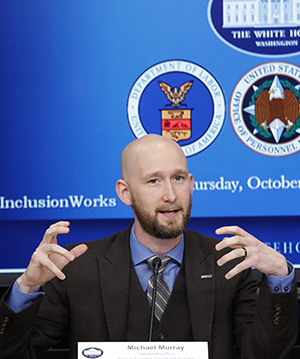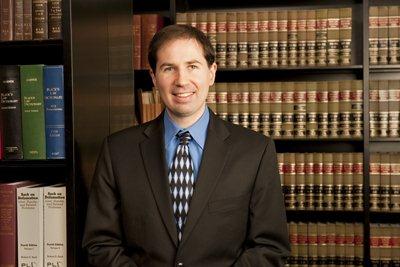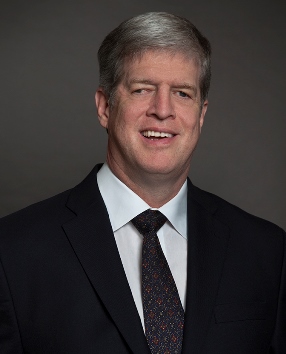Tim Elder is a California-based civil rights attorney, founder of the TRE Legal Practice, and father of three. Active in the blindness community, he has taken on various roles with the National Federation of the Blind (NFB) and is an avid musician and reader. AFB spoke with Tim recently about the 30th anniversary of the Americans with Disabilities Act and its impact on his life. This interview was edited for brevity and clarity.
This summer marks 30 years since a major milestone in our history—the signing of the Americans with Disabilities Act (ADA). The American Foundation for the Blind is celebrating the anniversary with a series of articles and conversations.
A Conversation with Haben Girma kicked off the celebration. AFB president and CEO, Dr. Kirk Adams, chatted with Haben Girma about her memoir Haben: The Deafblind Woman Who Conquered Harvard Law, the different experiences they had attending college before and after the passage of the ADA, the intersection of racism and ableism, and the importance of accessible online spaces during the pandemic.

The Americans with Disabilities Act (ADA) became law in 1990. The ADA is a civil rights law that prohibits discrimination against individuals with disabilities in all areas of public life, including jobs, schools, transportation, and all public and private places that are open to the general public. Below is a collection of reflections from AFB staff members about the impact the ADA has had on their own lives and what the future of the ADA holds for people with disabilities.
I was 29 years old when the Americans with Disabilities Act was signed into law. I was working in finance – only later in my career would I enter the non-profit sector – so at that time, I was largely unaware of its passing.

